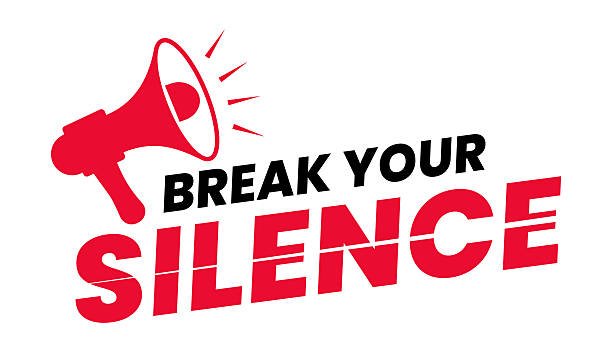In life, there are moments when silence becomes more than just an absence of words; it becomes a wall. A wall that separates us from loved ones, friends, and even ourselves. Whether caused by trauma, unresolved conflict, or emotional exhaustion, this silence can quietly erode the strongest relationships. Learning how to speak again isn’t just about finding words; it’s about healing, rebuilding trust, and reclaiming emotional well-being. In this article, we’ll explore why silence takes root, how it breaks our bonds, and practical steps to reconnect and speak again with courage and clarity.
Understanding the Power and Pain of Silence
Silence can often be misinterpreted. For some, it feels like a protective shield in emotionally charged situations. For others, it is isolating and painful. When relationships suffer due to a lack of communication, the emotional distance widens. Silence may result from deep hurt, fear of confrontation, or simply not knowing how to express what one feels. But as silence prolongs, misunderstandings deepen, and emotional bonds weaken. Learning to speak again starts with acknowledging the damage silence may have caused and recognizing its root causes.
Emotional Reconnection and the First Step Toward Words
Reconnection begins with vulnerability. Whether in a family, friendship, or romantic relationship, breaking the silence requires emotional readiness. That means taking the first step even when fear lingers. Often, people need a safe space to unburden the emotional weight they’ve been carrying. In such cases, support from peers or professionals can be the bridge between silence and speech. A moment of honesty, even if clumsy or brief, signals a willingness to speak again, and that can be transformative.
Finding Support Through Learning and Community
One powerful tool for breaking the silence is structured support. support learning seminars in Georgia offer individuals a place to learn communication skills, rebuild confidence, and address emotional wounds. These seminars provide guided exercises, real-life roleplay, and empathetic listening, making them ideal for those who want to speak again after a long emotional pause. By connecting with others facing similar challenges, individuals realize they’re not alone. Such environments help participants unlock the tools to express themselves, confront past hurts, and build new bridges of understanding.
Rebuilding Trust with Gentle Communication
Trust is essential when re-establishing communication. After silence, words can feel risky; every sentence holds the potential to heal or hurt. To truly speak again, one must be intentional and compassionate. Use “I feel” statements instead of blame. Replace assumptions with curiosity. Allow pauses and silences, but don’t let them control the conversation. Rebuilding trust is a journey, not a single conversation. Each time we communicate honestly and listen openly, we lay another brick in the path toward reconnection.
Overcoming Fear and Shame in Expression
Fear often silences people, the fear of rejection, judgment, or not being understood. Shame can do the same. Many who want to speak again struggle internally with self-doubt or guilt. The key is to approach communication as a process, not a performance. It’s okay if the words aren’t perfect. What matters is the effort, the intention, and the desire to reconnect. Journaling, art, and even voice memos can serve as warm-ups before direct dialogue. The goal is to gently guide yourself back into expression without forcing or rushing the process.
Healing Through Listening and Being Heard
Speaking again isn’t a one-way street. True healing also involves listening genuinely, without interruption or defense. When both parties feel heard, understanding follows. Conversations where empathy leads instead of ego are the ones that mend emotional rifts. By learning to listen deeply, we open the door for others to speak again, too. And in this shared space of honesty, old wounds begin to heal. Forgiveness becomes possible, and relationships start to thrive once more.
Incorporating Daily Communication Rituals
Consistency strengthens communication. Instead of waiting for conflict to push people into talking, create simple rituals that promote regular dialogue. Whether it’s a daily check-in, a weekly letter, or shared storytelling time, these routines normalize emotional sharing. They also prevent the buildup of silence that can again sever bonds. Over time, these small habits become meaningful reminders that it’s safe and essential to speak again regularly and openly.
Role of Therapy and Mentorship
In more complex cases, professional help may be necessary. Therapists, communication coaches, or even mentors can provide customized guidance. For example, cognitive-behavioral techniques can address communication blocks, while emotional intelligence coaching helps with regulation and empathy. These professionals are trained to help individuals navigate difficult emotional terrain, making it easier to speak again with confidence and self-awareness. The courage to seek help is itself a major step toward healing and connection.
Reclaiming Your Voice and Rewriting the Narrative
When you choose to speak again, you’re not just reconnecting with others; you’re reclaiming your voice. You are saying that your story matters, your feelings are valid, and your presence has value. Rewriting the narrative means letting go of the silence that defined your past and embracing a new chapter where openness and communication define your future. This choice empowers not only personal healing but can inspire others to begin their journeys back to connection.
Final Thoughts: Silence Doesn’t Have to Last Forever
While silence can damage relationships, it doesn’t have to be the end. With the right support, intentionality, and emotional courage, anyone can speak again. Whether through therapy, personal growth, or support learning seminars, there are tools available to help you bridge the distance and restore what was lost. When words return, so does connection and with it, the possibility of healing, love, and renewed understanding.
